What will happen if you boil the water. Harm and benefits of boiled water. Re-boiling water.
People living in cities have long been accustomed to boiling water before it is consumed. This action is aimed at eliminating various bacteria and microbes that feel great in the raw liquid, but collapse under the influence of high temperatures.
For many, it is customary to boil water once more in order to pamper yourself with another serving of such an aromatic beverage as tea or coffee. But this has no semantic orientation. The liquid has already been decontaminated by the first heat treatment and will not become even cleaner from any number of subsequent similar procedures. From the point of view of medicine, the used water should be replaced with a new one. Such measures are required for several reasons.
First of all, the repeated boiling of water already prepared for consumption reduces its taste, after which the liquid begins to give off an unpleasant metallic aftertaste.
Even crystal water does not contain the most useful impurities - especially when it comes to the chlorinated liquid of cities. The composition of water is designed so that the additional effect of fire will cause only oxygen molecules to evaporate. Thus, the water "becomes heavier", as the amount of liquid contained in it decreases, while the number of harmful precipitates remains unchanged.
It is noteworthy that boiling seawater is completely useless - having done this several times, you will see that the liquid has evaporated, leaving salt unsuitable for drinking. Impurities of salts are contained in fresh water, but not in such quantities. When boiling, other harmful substances are released - carcinogens, the amount of which directly depends on how much and often heat the same water. All these substances do not have an instant effect on the body, but, accumulating in it for years, gradually destroy it.
How not to disturb the life-giving power of water
How to protect your health from the negative effects of water? It is necessary to periodically replace it in the kettle - whenever you plan to boil it. You can leave the old liquid, but then you should limit it to simple heating, not leading to boiling.
We'll have to try to re-boiling water had a bad effect on the person. In order to achieve the precipitation of hazardous precipitations in dangerous doses, it is necessary either to boil it countless times, or to drink an incorrectly prepared liquid for use over a long period of time. But it is necessary to approach this issue consciously, as the water will turn into an indispensable friend of your body.
Water is one of the most unique substances in nature. It is necessary for man every day. An important factor in its use is purity and the absence of harmful impurities. Poor water quality can be extremely dangerous for the body. Therefore, before use, it is usually filtered, frozen or boiled.
What happens to water when boiling?
Each of us boils water. Some use it as drinking, cooling it further. Most brewed tea. You can often hear that water cannot be boiled twice. It is believed that such a liquid becomes dangerous to humans. This is explained by the fact that even with long-term first heating, useful trace elements break up. During the second boiling in water, supposedly nothing useful is left.
Boiling is necessary in most cases. Harmful bacteria can live in tap water. They die after 2-3 minutes of heat treatment. But it is worth noting that some dangerous microorganisms are not afraid of high temperatures. In this case, boiling is powerless to cope with the problem. Also in this way it is impossible to remove heavy metal salts from water.
It is believed that water can not be boiled twice due to the fact that it can become "heavy." Chemistry is a myth. Heavy water is almost impossible to create at home. This is a difficult process. Such a result is affected only by long boiling for many years.
In addition, heavy water is not lethal to humans. It is relatively quickly excreted from the body.
The quality of boiled water may depend on the type of kettle. Many people do not boil water twice in plastic electric kettles. They believe that the reaction takes place with plastic. In fact, if the polymer is approved for use as a material in which water is heated, then it is safe.
Harmful to health can be caused by highly chlorinated water. She already at the first heating reacts with plastic. Various hazardous substances are released into the liquid. They may persist even at repeated boiling. Therefore, the problem is more likely not in the secondary boiling, but in the composition of the water. Before heating in an electric kettle made of plastic, it must be kept in a glass container.
The possibility of harm from secondary boiling can also be the case if the kettle is made of low-quality material, to which plasticizers are added. These substances make plastic less brittle. They begin to stand out during heating. It turns out that we drink water or tea with a dose of plasticizers. Therefore, you should not buy cheap Chinese devices. Cost is a direct indicator of the quality of plastic. The service life of kettles from safe material is 3 years. After that, it is better to replace it with a new one.
Boiling water: myths and facts
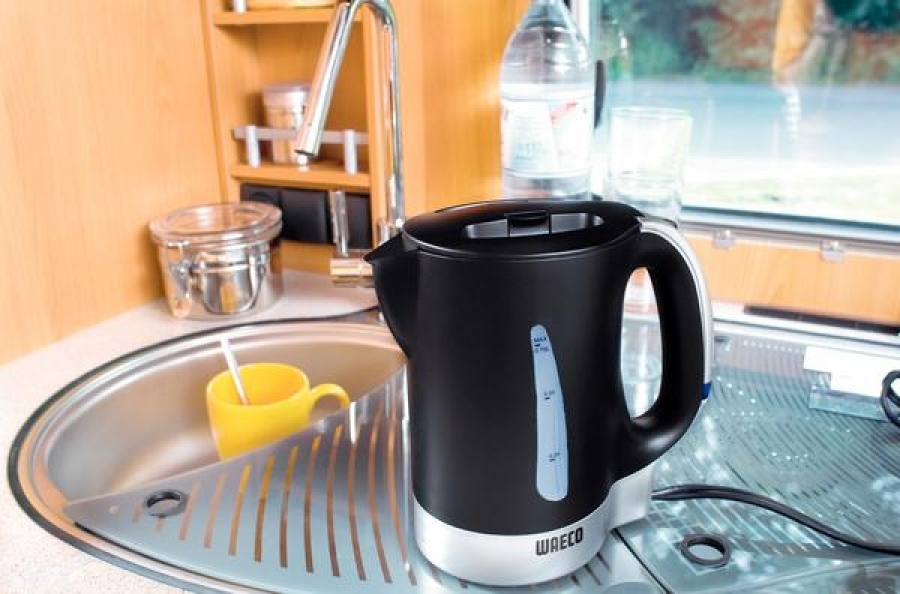
- Some explain the harm of boiling by disrupting the structure of the liquid. In order to deal with this recall such a thing as the memory of water. It means that the liquid remembers the molecular composition of the substance initially dissolved in it. When heated, the memory of this memory is supposedly destroyed, and the water becomes dead. Official science does not recognize this fact. The scientific name of dead water is distilled. In fact, it is a liquid devoid of all impurities. It is obtained through a complex process. Like heavy, to get distilled water at home is almost impossible.
- Another reason for fear of repeated boiling is the loss of oxygen in the liquid when it is reheated. It becomes less in the composition of the liquid already at the first heating.
- Thus, when boiling water quality is important. Chlorinated water is dangerous, both during the first and second heating. With repeated heat treatment, the liquid does not become harder. It is softer than normal, from the tap.
- Boiled water will not harm health under the following conditions:
- Settling or filtering the fluid. Chlorine evaporates from the water and the formation of carcinogens will not occur when heated
- Proper dishes for boiling. You should not choose teapots from cheap plastic. When water is heated in it, a plasticizer is released.
- Descaling the kettle. This allows you to save water from impurities that accumulate on the walls of dishes.
Currently, boiled water is used almost everywhere. This article describes why re-boiling water is harmful. Here are lots of useful tips and recommendations.
As is known, the human body consists of water at 55-85 percent, depending on age and body weight. During the day, part of the water leaves our body naturally, and, naturally, a person is forced to compensate for its deficiency.
This is done simply - a person drinks water. And a significant proportion of it is boiled water. Few people think about the effect that boiled water has on our body - is it beneficial, harmful or does it not matter, drink it raw or boiled?
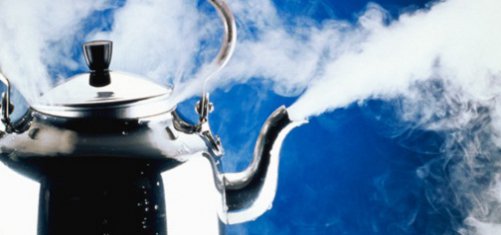
Boiling water is known to mankind since, perhaps, as a man mastered the fire. Boiled water, in one form or another, accompanies a person all his life - in the form of tea and coffee, soups and sauces. Many people prefer boiled water raw, trying to get rid of possible pathogens or the smell of chlorine. The electric kettle is now an integral part of the kitchen interior.
But let's try to figure out what is actually happening when boiling water and understand - is it harmful to boil water or is it still necessary?
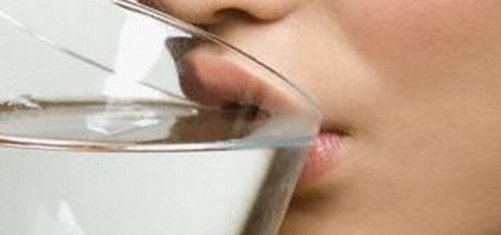
As is known, most microorganisms, including pathogens, do not withstand high temperatures and die when boiled. Hence, the benefits of boiling, as the simplest and most affordable way to disinfect water, especially in hiking conditions, when water has to be taken from natural sources - springs, lakes or rivers. But is it necessary to boil water taken from the water supply?
First, as a result of recent research, it turned out that not all microorganisms die at boiling. Spores of fungi, some sporiferous bacilli and spores of the causative agent of botulism tolerate boiling. In order to kill the causative agent of viral hepatitis or “mad cow disease”, boil the water for at least 10 minutes. In addition, all mechanical pollution, as well as oils, petroleum products, pesticides, herbicides and other pollutants are not only not removed from the water during boiling, but can also react with each other, increasing the temperature, forming hazardous compounds.
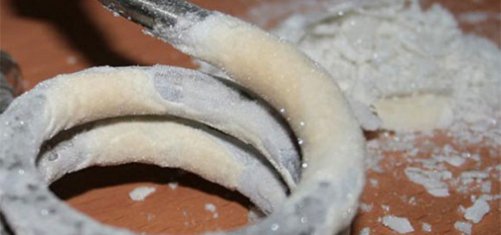
But suppose even that the water taken for boiling, has been thoroughly filtered and does not contain impurities. What will happen to her when boiling?
As you know, when bringing water to a temperature of 100 degrees, water changes its state of aggregation - it changes from a liquid to a gaseous state. But is this only happening in a boiling kettle?
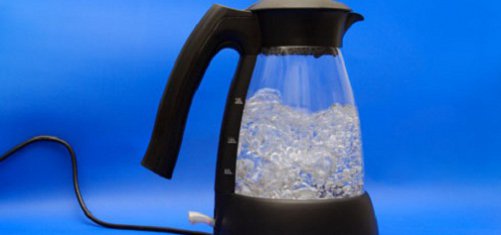
Probably, everyone heard the expression from Russian fairy tales - “dead water” and “living water”. So, the existence of "dead water" is not a myth at all. It's about heavy water.
Heavy water does not look different from ordinary water. The difference lies in its chemical structure - hydrogen atoms in it are replaced by atoms of its heavy isotope - deuterium, and therefore its formula is written not as H2O, but as D2O or 2H2O. The destructive effects of heavy water have been proven by laboratory tests. The consequences of its use are diverse - from sterility, often irreversible, to the death of the organism.
It would seem, what does boiling have to do with heavy water? The most direct! The fact of the matter is that when boiling water a small amount of heavy water is formed - because of its greater specific mass, it “settles” near the bottom of the kettle. But many people, without using all the water from the kettle, add raw water to it and boil it again! As a result, the heavy water content gradually increases with each boil. The effect of such water on the body has already been mentioned above.
For many, especially for residents of large cities, boiling is a way to rid the water of the unpleasant smell of chlorine. It is believed that chlorine vapor when heated evaporates from the water and boiled water does not contain it. However, this is not the case. Chlorine is a chemically active substance, and the temperature rise, as is known, accelerates many chemical reactions.
As a result, along with fragrant tea or coffee, a person receives a whole “cocktail” of chloride chemical compounds, many of which are not removed from the body and accumulate over the years, poisoning a person and disrupting his metabolism. Such, for example, are trihalomethanes - and they are much more dangerous to human health than chlorine, which was originally contained in raw water.
What is the way out? Very simple. The chlorine contained in tap water is quite volatile. It is enough to leave the water in an open container for a day and the chlorine will "erode" itself, after which the water can be boiled fearlessly. Just do not forget that when defending the water, chlorine salts and other impurities settle at the bottom of the tank, in which the water is settled. Therefore, it is better to use only two thirds of the volume of water, and drain the bottom third and thoroughly rinse the container.
Another aspect that speaks against boiling water is that during boiling the volume of water decreases, and consequently, the concentration of salts in it increases. Excess salt leads to a whole bunch of diseases - heart attack, kidney stones, atherosclerosis, and joint diseases.
The scum on the walls of the kettle is also a consequence of the high salt content in tap water. When the boiling point is reached, they precipitate, eventually forming a dense layer on the walls of the kettle. And the opinion that water becomes cleaner from this is very wrong! In fact, pouring water from a kettle into a cup (especially if there is a lot of scale in the kettle), the tea drinker provides himself with an "additive" in the form of the same scale that later settles in the kidneys and can cause urolithiasis. Also not removed by boiling iron salts, cadmium, mercury, nitrates.
Another interesting feature of boiled water, for which it can rightly be called "dead", is the fact that boiling destroys the internal structure of water. The fact is that raw water consists of fragments of a structure that resembles crystalline. Such water can later be relatively easily integrated into the cells of the human body, because, as it turned out, as a result of numerous studies, the water in the cell is stored in a crystalline form - it can be said that the cell “freezes” water.
When a person consumes boiled water, in which all intermolecular bonds are destroyed, the cell needs tremendous efforts to streamline the structure of the water - only then can it be used. No wonder our grandmothers rubbed their faces with ice cubes, thus slowing down the aging process and speeding up cell regeneration. To verify the validity of this theory, it is enough to try to water 3 identical plants with different types of water during the month: boiled, ordinary raw and thawed, obtained from the melting of ice or snow.
The results will speak for themselves - the plant watered with melt water will develop much more actively than the plant watered with ordinary water, and the plant receiving boiled water will be depressed.
And finally, when boiling, especially when repeated, the water loses almost all the oxygen contained in it in dissolved form, which adversely affects both the taste of drinks and dishes, and the metabolism in the human body.
Those who use sorption carbon filters should take special care: if you do not replace the filter cartridge in time, the coal dust from the filter can get into the kettle, and when boiling it forms toxic dioxide. In general, such a filter is not the best choice, since if it is not used for some time, active reproduction of microorganisms that feed on organic matter that has settled in the filter cassette begins in its filler.
So, what to do to boiled water, if not beneficial, then at least would not bring harm?
Always drain unused water from the kettle and rinse it thoroughly. Each time, pour freshly separated or filtered water into the kettle.
Ensure that no scale builds up in the kettle. If necessary, clean it with special tools.
Use a combined sorption-ion exchange filter for water, always changing the filter cassettes in time (it must be remembered that many brands of household filters have a significantly longer life time than the declared one).
When pouring boiling water or tea into a thermos, do not close the thermos immediately, but let the water “breathe” for about five minutes, this will preserve the taste of the drink and give the water at least partially fill the oxygen lost during boiling.
A person whose body is 70% liquid is vital to drink enough water. It is necessary for the normal course of all processes in our body. But what kind of water is better to drink? The liquid that flows from the tap in large cities is not suitable for drinking, so many people prefer to boil water. But is everything so simple? Is it good to drink boiled water or is it a continuous harm? These questions need to understand more.
In field physics, boiling refers to the process of transition of a liquid state into a vapor state, followed by the appearance of bubbles at a temperature of 100 degrees. Conventionally, the boiling process is divided into the following stages:
- At the bottom of the tank, small single bubbles appear, which then rise to the surface of the water and are grouped mainly at the walls of the vessel.
- Bubbles appear a lot. They provoke turbidity and then whitening of the liquid. This stage is also known as the “white key”, as the process is similar to running spring water. Tea lovers often remove a kettle from the stove at this stage, preventing the water from boiling.
- Further, there is an intense boiling, bursting of large bubbles and a strong release of steam. Water is sprayed from the dishes.
The benefits and harms of boiled water still cause a lot of doubts. Boiling tap water solves the following tasks:
- Kills microorganisms;
- Reduces water hardness;
- Reduces chlorine content.
This is the main benefit of boiled water. Hard salts remain in the form of sediment at the bottom of the tank, most of the bacteria die. In particular, boiling is important in the hot season, when, despite chlorination, the number of microorganisms in the water becomes larger.
However, boiling does not destroy the hepatitis A virus, botulinum bacillus. In addition, if the water is long, the bacteria can get into it again. Therefore, boiled water, the benefits and harm to health from which are not so obvious, can not be stored for several days. Boiling makes the water softer. The concentration of certain salts becomes higher due to evaporation of the liquid.
Danger and harm of boiled water

However, studies say that boiling does not cope with all microbes. So, in order to kill the hepatitis virus, you need to boil water for half an hour. Wand botulism can disappear only after a fifteen-minute boiling, and its spores die no less than five hours! Of course, no one will boil so much water. Also harm boiled water is that it does not destroy active pesticides, nitrates, heavy metals, phenols, petroleum products. A number of useful components in water, such as calcium and magnesium salts, are deposited on the walls of the vessel.
It is also worth considering that boiling, especially long-term, causes a clear decrease in the volume of water. A precipitate appears in the liquid that remains. If you add raw water to the settled water and boil it together, the percentage and concentration of heavy water will increase. And it poses a serious threat to health. Therefore, experts insist that in no way can one dilute boiled water with boiled water.
Many believe that the use of boiled water for the body is that it is free of chlorine. But studies have shown that this microelement begins to interact with other compounds during boiling, which may cause the formation of dangerous trihalomethanes. Also, heating water causes oxygen to escape from it.
Answering the question of whether boiled water is useful, many experts believe that it becomes “dead”, therefore it cannot bring any value. It does not saturate the body with valuable minerals and the moisture that it needs. It is also known that after some time after boiling the water is again infected with various microorganisms that can be in the kettle or just fly in the air. Although, of course, the time is quite significant, so that we have time to drink tea. Whatever it was, boiling can not be considered one hundred percent way to clean water from anything that can be harmful to our body.
Is there any benefit in boiled water?
Understanding whether boiled water is useful for drinking, it is worth noting that it is softer than tap water. It is believed that drinking water that boiled once, improves mental and physical activity, removes toxins from the body, improves blood circulation.
Some traditional healers recommend drinking warm boiled water, especially on an empty stomach. Speaking about the benefits of boiled water in this form, they highlight its ability to improve metabolic processes and accelerate the breakdown of fats. In fact, any pure water has this effect, if you warm it up, because the essence is not boiling.
Is boiled water good or bad? This process really makes it better for the body than water or well, which contains a lot of bacteria and aggressive particles. But boiling does not make water the way it is completely healthy and safe. It is recommended to use it only if you have no other way to purify water. Then it will help reduce the risk of poisoning and other negative consequences. But it is recommended to boil water for at least 8-10 minutes, which our usual electric kettles are not designed for. When consuming boiled water, remember that it is undesirable to store it in a container where it was boiled. It is best to pour it into a glass container. In the kettle, be sure to remove the scale before turning it on.
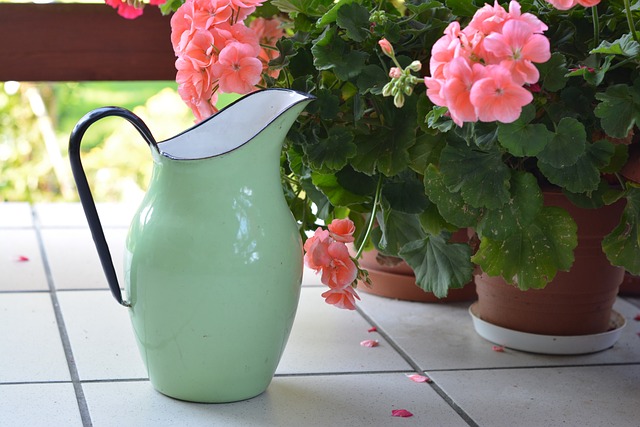
Another important question is whether it is harmful to boil water a second time. Here it is worth considering the following points:
- Boiling deprives the water of taste. The water you boil several times will be completely tasteless. Its unpleasant metallic taste is possible.
- Boiling does not kill impurities and salt. The more often water is boiled, the more oxygen evaporates from it, and the higher the concentration of these salts becomes. The drink becomes toxic and, although this toxicity is small, it tends to accumulate, so a negative effect will be present.
- Usually we boil chlorinated water. Chlorine, as we have said, when heated, reacts with organic substances and forms dangerous toxins. The more often the water is boiled, the higher their concentration. Based on this, the answer to the question of whether boiling water again is harmful or not can be positive.
Thus, water boiled several times retains in itself extremely little of the benefits that our body needs from drinking water. And the more it boils, the more "dead" it becomes. After finding out whether it is harmful to boil water several times, it can be concluded that it is better to limit yourself to boiling once.
So what kind of water is it better to drink?
If you want to drink water with health benefits, then it is best to use not boiled, but specially purified water. For this, special filters can be used, which are not a problem to buy today. They help clean water from heavy metals, chlorine, bacteria and other harmful components. There are filters in the form of jugs, as well as filters that are installed directly on the water pipe, and already purified water flows from the tap. Also a good option is drinking bottled water. It is guaranteed to be cleaned and does not cause any harm to the body.
If the water to which you have access now does not cause you confidence, it is better to boil it and protect yourself from poisoning and other unpleasant consequences. After all, in what kind of water is healthier: boiled or raw, the choice is clearly on the boiled side (of course, if raw water has not been purified). Therefore, it is not recommended to use tap water, but you can resort to boiling - sometimes it makes life much easier and protects us. Watch out for the quality of the water you drink.
NOTE
Mom, why do you boil water?
“To get the germs dead.”
- Do you want me to drink tea with dead germs?)))
Just say, in itself, re-boiling water does not bring much harm, but there will be no benefit either.
So why not re-boil water or add boiled raw water and boil together? Consider the basic opinions.
1. Heavy water.
In the process of long-term boiling, large masses of water evaporate from the water, and in this way the proportion of "heavy" D2O water increases. Heavy water is deposited at the bottom of the kettle. Therefore, if you do not pour out the remains of boiled water, but add fresh water to it, then when you re-boil the percentage of heavy water in this vessel will increase even more. With repeated additions to the remnants of the old boiled water of new quantities of fresh water, a rather large concentration of heavy water can be obtained. And it is dangerous to human health. If one and the same water is boiled for a long time, then it becomes “heavy” - like treated water from nuclear reactors.
Heavy water is water with deuterium (deuterium oxide). Deuterium - heavy hydrogen, denoted by the symbols D and 2H. Deuterium in small doses is also found in ordinary water (1: 5500). The increase in the concentration of heavy water, even with prolonged boiling, is so insignificant that it lies beyond the sensitivity of the body and can only be detected by accurate instruments. Increasing the concentration does not mean an increase in the amount of heavy water itself.
Heavy water(also deuterium oxide) - this term is usually used to refer to heavy water. Hydrogen-hard water has the same chemical formula as ordinary water, but instead of atoms of a usual light isotope of hydrogen (protium) it contains two atoms of a heavy isotope of hydrogen - deuterium. The formula for heavy water is usually written as or 2H2O. Externally, the heavy water looks like normal - a colorless liquid without taste and smell.
However, heavy water is not as toxic as many people think. A person can drink a glass of pure 100% heavy water without visible harm to health, the whole deuterium will be removed from the body in a few days.
Experiments on mammals have shown that tangible consequences for the body occur at very high concentrations of deuterium in the tissues (25% -50%). A person weighing 70 kg should drink 3 liters of 100% heavy water every day for a week, so that its concentration in the tissues is 25%.
The final answer will give us a school problem book in chemistry for the 11th grade. In one of the tasks, a quote is given from the book Pokhlebkin "Tea", where the author writes about "heavy water", the inadmissibility of making tea out of it and the need to pour new water into the kettle each time. Further, the authors of the problem book ask: how many times it is necessary to add water and boil it in a 1.5-liter kettle to increase the concentration of heavy water 10 times? There are all kinds of moths, shares, X's and, finally, the answer. "In order to increase the content of heavy water by 10 times, it is necessary to evaporate half of the water 157 times in a row, that is, to reduce its initial amount by some unimaginable number with degrees once, which seems senseless." So drink calmly tea from boiled water several times!
2. Decrease of oxygen in water.
The statement that it is impossible to boil water twice, because it “becomes less oxygen” does not correspond to reality. The oxygen in fresh boiling water is as little as in twice boiled - and several times less than in water, say, 90 degrees. There is no supersaturated solution of oxygen in water under normal conditions, therefore neither the amount of boiling nor the rate of heating of water is important.
3. Increasing the salt concentration.
There is an opinion that when boiling again in water, the concentration of either just salts or heavy metal salts increases, and all this is very harmful, of course. With each boiling, the water evaporates and the concentration of dissolved salts in the residue increases. At the same time, everything depends on the purity of the source water, if the water is clean, you will not be able to boil it at least how much.
This is not true. All salts of reversible stiffness decay even during the first boiling. When water is heated, there is a rapid decomposition of hardness salts with the release of carbonic acid - this explains the "whitening" of water and the release of a large number of small bubbles before boiling. Accordingly, boiled water, as a rule (with the initial presence of significant reversible hardness, is softer than boiled water, but how many times boiled water is not important.
3. Water becomes "dead."
Filtered water is "live", i.e. saves because "information structure" of running water. Boiled, respectively, - still. (Not to be confused with "dead" acidic and "living" alkaline water after hydrolysis!) Animals feel good, they are more willing to drink running water from the tap (even with chlorine!) Or filter (as well as from puddles and open reservoirs), rather than boiled out of the kettle. Officially, science is not recognized. So to believe or not to believe - your choice.
* * *
So, of course, water can be boiled again, but from the point of view of benefit, it is most useful to drink filtered water, but not boiled water. For tea and coffee, it is enough to warm the water to 80 degrees. And if you boil water, then not immediately from the tap! The water must be allowed to stand in order for the chlorine to evaporate, which has already been written here.

